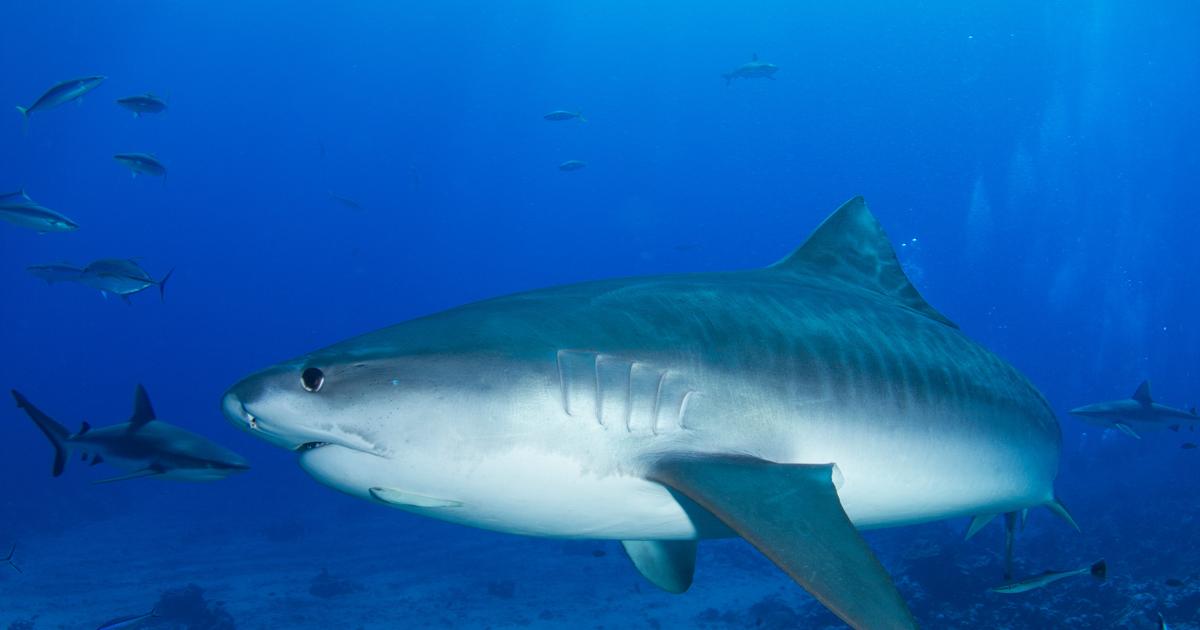After shark attacks in the bays of Noumea, swimming remains prohibited on the coast of the capital of New Caledonia.
A situation that leaves the local tourism sector in the expectation, as it regained color after the health crisis.
Indeed, in the space of three weeks between the end of January and February, three attacks by tiger sharks or bull sharks were recorded, including one fatal on an Australian tourist.
The mayor of Nouméa, Sonia Lagarde (Renaissance), reacted on March 17 by issuing an order prohibiting swimming until December 31, arguing that “
her responsibility (was) at stake”
.
The city has also launched a call for tenders for the installation of an anti-shark net.
The attacks
"have considerably tarnished the image"
of New Caledonia,
"considered today, in relation to its population, as the hotspot for shark attacks"
, deplores the mayor.
Admittedly,
“it is still too early to assess the economic impact”
of this phenomenon, indicates Julie Laronde, director general of New Caledonia Tourism (NCT).
A first survey was carried out with metropolitan tour operators,
“who did not send us any cancellations”
, reassures the manager.
Read alsoShark attacks: the precautions to take to avoid being the target
“We no longer have local customers or cruise passengers
”
But
"there is a risk of amalgam"
, she believes, recalling that
"swimming is only prohibited in Noumea, not in the rest of New Caledonia"
.
On one of the busiest bays in the agglomeration, Maxime, manager of a bar-restaurant, who wished to remain anonymous, notes the absence of customers.
“It was gradual, but there we no longer have either the local clientele or the cruise passengers.
No one comes on the berries anymore.
It's sad because after three years of the Covid crisis without tourists, we had an incredible start to the summer
," he said.
In 2019, before the start of the epidemic, tourism contributed to just under 5% of New Caledonia's GDP and accounted for nearly 4,500 jobs.
Read alsoNew Caledonia reopens to tourists from mainland France
Faced with this situation, the assembly of the southern province unanimously adopted on Friday a system of support and accompaniment for economic actors suffering the consequences of the bathing ban.
It should concern about thirty companies and service providers in the agglomeration.
The plan does not include hoteliers, who could however be helped depending on the evolution of their reservations, expected to fall by some elected officials.
“Tour operators, from the moment they are told that there is a bathing ban until December 31, will delist the hotels, because they will consider that it has no interest to sell a hotel on the edge of a beach where you cannot swim
,” notes Gil Brial, second vice-president of the southern province.
An unexplained phenomenon
The bathing ban divides the political class of Nouméa.
Unity Country, one of the opposition groups to the municipal council, denounces
"a disproportionate and unjustified measure"
.
“In Nouméa, nothing or very little has been done for four years”
against sharks, accuses Calédonie ensemble, another opposition group.
"The consequences are considerable for our country
," he said.
This political group stresses the need to resume scientific studies to better understand the phenomenon.
Read also“Mini-sharks” attack swimmers on California beaches
Because it remains largely unexplained, even if it has been observed that sharks were more numerous near the New Caledonian coasts from January to March, the calving period.
The risk of attack is also greater after heavy rains, such as those experienced by the South Pacific territory at the end of January.
A study on the movements of large sharks in coastal areas was initiated in February 2019 but frozen in May of the same year, after an accident in a marina, then finally abandoned.
In charge of this aborted study, Laurent Vigliola, ecologist at the Institute of Research for Development (IRD), today wishes the creation of a "
space for dialogue bringing together actors from civil society, communities and scientists »
.
“Alongside this space, a scientific council could try to provide answers to questions.
This would make it possible to move forward in a more organized way
,” the researcher wants to believe.

